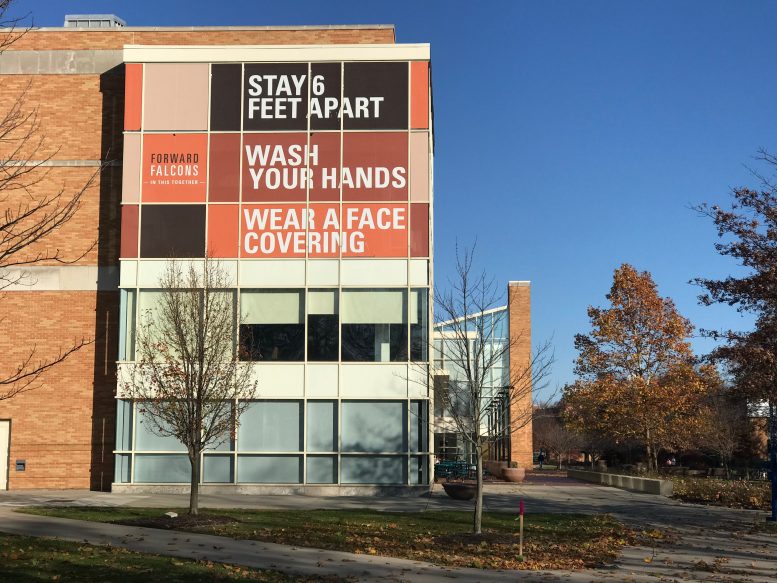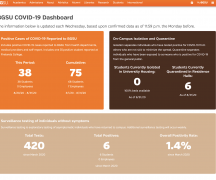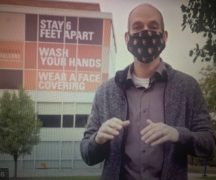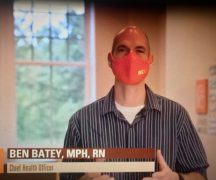By DAVID DUPONT
BG Independent News
The possibility of starting the spring semester at Bowling Green State University online only is being discussed. Chief Health Officer Ben Batey told Faculty Senate Tuesday, that it’s possible the spring semester, set to begin Jan. 11, may be a mirror image of the fall semester which started with some classes meeting face-to-face and ended, as planned, with all courses virtually.
Another spike in COVID-19 cases is expected within the next three weeks stemming from the Thanksgiving holiday, and then another after Christmas. But after that, Batey said, they hope cases plateau.
Provost Joe Whitehead said those conversations about how to start the spring semester are ongoing. However, he added, those institutions that started the fall semester with only online instruction before having some face-to-face classes did not mitigate the spread of the virus. What seemed to succeed for BGSU, he said, was the effort to have fewer students in the residence halls with most in single rooms, a process known as “de-densifying.”
The evidence, Whitehead said, doesn’t support gaining anything through being online only.
He noted that there was not a single documented case of COVID-19 transmission from exposure in a classroom setting.
In the meantime, Batey said, the university will maintain its testing regimen through the end of the year. Many students who went home over Thanksgiving have returned to Bowling Green despite classes being online.
The testing, he said, did detect a number of students who were positive for the virus right before they left campus. This helped to prevent further spread.
Batey praised the work of students in the Medical Laboratory Sciences program and other students in the College of Health and Human Services for their work in contact tracing and other aspects of dealing with the pandemic.
Even as cases increase in the county and the state, many factors are looking up for the spring semester, he said. That includes the imminent distribution of a vaccine.
The first doses are expected by mid-December. Those will go to frontline health care workers and residents in long-term care facilities. The vaccine won’t be available to the general public until April or May, he said.
Then it will take someone receiving the two-dose vaccination about five weeks to gain the full effect.
But health officials are also learning more about handling the virus. This will mean shorter isolation periods for those who test positive and shorter quarantine periods for those who are exposed to the virus.
Batey was also questioned about an indoor running club that had booked into the field house.
He said that events have to be scheduled in advance but are subject to change. “The whole premise is to be flexible and adaptable.”
Many events that appear on the schedule now will not happen or will be offered in modified form involving fewer participants.





